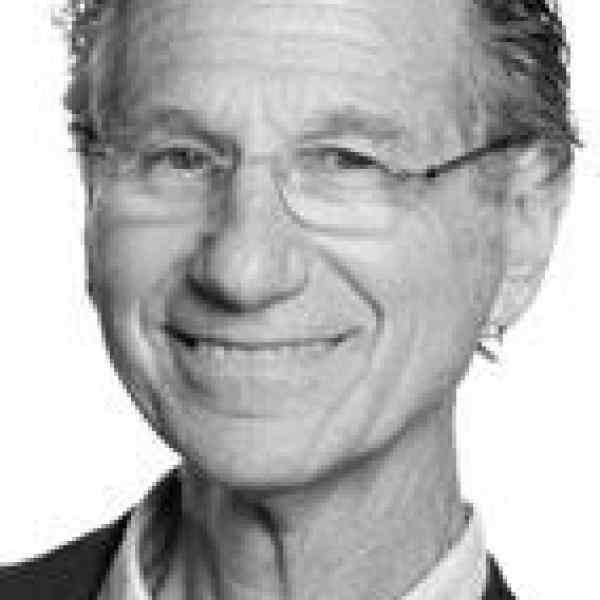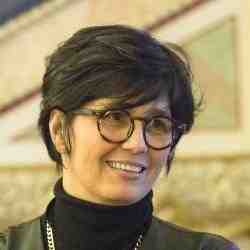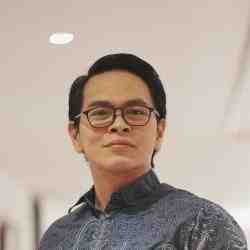Introduction
Through a unique combination of media and civic action, Dale Bell and Harry Wiland are shining a light on citizen-led initiatives that present promising solutions to social problems. Through their work, the ordinary and the extraordinary meet in new and exciting ways and foster change in families and cities across America.
The New Idea
Dale and Harry are finding and documenting a new spirit of cooperation among neighbors, community leaders, elected officials, and government agencies. Convinced that understanding engenders civic engagement, they use their unique talents and media outreach model to spread the seeds of locally inspired solutions, and to sustain interest and dialogue for the extended time necessary to achieve profound systemic social change. Through a documentary filmmaker’s lens, they show people from disparate backgrounds and political leanings taking action where society’s institutions have failed, and finding encouragement and help from neighbors. Dale and Harry want others to recognize and engage in this resurgence of civic energy. They founded the Media & Policy Center Foundation to use socially relevant media to turn viewers into doers by showing what individuals and small groups can achieve, and by giving people the tools they need to be effective agents of change. Their stories impact viewers deeply, inspiring them to take action. By capturing and disseminating personal and community stories that would not otherwise gain media attention, Dale and Harry help citizens in communities across the country understand and address the issues that confront them. They then use public television broadcasts to catalyze civic engagement.
The Problem
In many parts of America today, the art of community has been lost. Many communities lack a “public square” where neighbors meet to discuss issues of common concern. Citizens and the policymakers that represent them often lack the information and opportunity they need to engage in thoughtful debate. Public media fails to deliver a full spectrum of reliable information and well-reasoned opinions to the marketplace of ideas. Instead, partisan views and strident voices dominate public discourse and discourage the active engagement of citizens. People stop believing that the system works and that they can make a difference. Involvement in community life, such as attendance at public meetings, has decreased by 35 percent over the last 25 years. Americans sign fewer petitions and are less likely to join a consumer boycott as compared to just a decade or two ago. As Dale and Harry see, a vibrant democracy is not possible without the strong foundation of an engaged citizenry.Public television has not achieved its full potential to engage citizens in analyzing and solving social problems. It has been primarily a one-way communications medium that “preaches to the choir.” Public Broadcasting System (PBS), the non-profit television service in the U.S., has tended to view its educational mandate as a lecturer views a class—talking at, not with, audiences, and planning content based on what the radio stations decide will be of interest and benefit to viewers. Educational television and documentary films raise awareness of particular issues, but typically fail to galvanize solutions-oriented civic action. Efforts to link media to community action have been limited in scope and narrowly focused. Media attention to social issues is not sustained for a long enough time to guide and achieve significant grassroots engagement or policy change.
The Strategy
To promote citizen-inspired solutions to social problems, Dale and Harry developed an interactive, community-oriented process to create local and national “conversations,” reignite civic engagement, and sustain the dialogue so that complex issues can be addressed in depth. They created a new media model that combines a nationally televised documentary with local coalition building, local and national town hall meetings, guidelines and support for community outreach and action, and the interactive use of the Internet. They tested this model with elder care, then refined it and applied it next to urban sustainability. Harry and Dale see their work as a rock skimming the surface of water, creating ripples of activity. For their pilot project, And Thou Shalt Honor, they produced a documentary on care givers and elder care. Before the program aired nationally in 2002, they helped to organize and energize 1,500 community coalitions, engaged 58 national partners, and created a companion book and an online database of health care providers searchable by zip code. Then they helped organize and raise funds for nine regional town hall meetings that were broadcast by PBS in 15 states. Each town hall meeting included citizens with a personal stake in the issue as well as local and national practitioners, policymakers, experts, and social innovators. Through questions selected in advance with the local coalition, the moderator brought out individual and family challenges, views and needs, as well as solutions developed by “extraordinary ordinary” citizens and groups. After each broadcast, trained volunteers used a local resource guide developed by the coalition of caregivers to refer callers to service providers. Following the broadcast, PBS stations received thousands of calls, many of them from normal people wanting to get involved. As a result of the project, the Kansas City coalition grew to 150 members and 80 organizations. The coalition now offers workshops for professional and lay caregivers and provides volunteer drivers for older adults. The Red Cross and Visiting Nurse Association created a new home care service, and the coalition worked with United Way to create an elder care hotline. Dale and Harry wove excerpts from each town hall meeting into a national PBS town hall meeting film that aired in 2005. To date, the broadcasts have reached 16 million viewers. The team is in the process of creating a low-cost licensing arrangement and 15 half-hour programs so that local PBS stations can add their own material and use the And Thou Shalt Honor companion materials to offer a weekly series that localizes the conversation. PBS provides the team with trusted name recognition and a large, nationwide network of viewers. Harry and Dale decided to raise all of the funding for each project, though, so that they own the intellectual property and can create free or low-cost access to all of the material they produce. They license PBS and its affiliates to air the broadcasts. On each issue they address, Harry and Dale work with communities to identify exemplars of best practices and develop local resource guides and action plans. They find and work with a leading innovator in the field, conduct extensive research, produce a documentary for a PBS national broadcast, publish ancillary materials, establish a website, create short videos on the issue, and conduct publicity campaigns. (Publicity for the first And Thou Shalt Honor broadcast yielded 110 million media impressions.) They also assembled an actively engaged national advisory board and raised about $3 million up front from non-competing underwriters. More than half of the funds support community-based activities. For their second production, the team expanded the model to engage youth in the issue of urban sustainability for Edens Lost & Found. With support from the Illinois Sustainability Education and Training Project they developed a 20 unit environmental education curriculum, supported with interactive video. Edens will also include web pod-casting and a speakers program. Internships with community partners have been set up and a second academic/professional symposium was held in October 2006. Additional public launch events in the other cities featured in the series (Chicago, Philadelphia, Seattle and Los Angeles) kick start the broader campaigns. In his forward for the companion book, Ashoka Fellow Van Jones describes the project as “one of the first major attempts to chronicle a new American movement—a quiet counter-current that has the potential to…flood our inner cities with renewed hope and opportunity.” Going forward, Dale and Harry will apply their model to other pressing issues. Projects on the drawing board include Which Way American Education, About Children, and Eldertopia with Ashoka Fellow Bill Thomas. They are raising resources to implement these projects simultaneously and will partner with universities to develop graduate programs to prepare young people to use this media/outreach methodology. To build deep public understanding and sustained civic action, Dale and Harry provide three or more years of initial programming on each issue they explore, and a second “wave” of broadcasts and outreach that can extend the project for up to 10 years. And Thou Shalt Honor is in its fifth year and going strong. Edens 2 will be international, and at least one of the programs will be set in China.
The Person
Harry grew up in Brooklyn, the son of a salesman. As a child his mother took him with her to the children’s hospital where she volunteered. He took to heart this lesson on the importance of giving back. Harry skipped two years between junior high and high school, winning scholarships to support his education. He planned to become a scientist, but maintained and nurtured a deep connection with the arts.While enrolled in a molecular biology Ph.D. program at the University of Massachusetts, Harry realized that he was more interested in the impact of science on society than in labwork. He came upon C.P. Snow's The Two Cultures, on the chasm between science and the humanities, and felt as if it had been written for him. He had the opportunity to meet Snow, who had left a career in physics to become a writer. This meeting spawned a 10-year friendship. He also met and was influenced by James Watson and his book on the creative process, The Double Helix. Inspired by these mentors, Harry transferred to Colombia University's Film & Television program, where he earned a Master’s of Fine Arts in 1970. Both Harry and Dale were part of an emerging independent film group in New York in the late 60s and early 70s. They experimented with new ways to tell stories, and with technology that allowed documentary filmmaking to be more portable and interactive. Harry moved to Los Angeles to pursue a career as a multimedia producer/director. His interest in education led him to co-found and serve as CEO of an educational software firm, Leonardo Internet. He went on to produce distance learning teacher training programs, and in 1995 he founded CyberSchool to deliver quality educational content via web-based interactive courseware. Like many of Harry’s ideas, CyberSchool was ahead of its time. In 1999 he joined forces with Dale to fulfill a vision that they felt was so big they could only accomplish it together.



